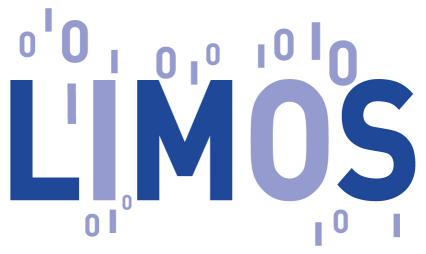|
Date : 27 juin 2023 14:00 - Type : Thesis - Ibrahim SAMMOUR - Amphi B - IUT
Performance Enhancement in Wi-Fi Networks using Machine Learning |
Wireless technologies are used in various applications due to their ease of deployment, and inherent capabilities to support mobility. Wireless Fidelity (Wi-Fi) is one of the popular wireless technologies. The rapid growth of Wi-Fi networks, the increasing demand for network capacity in terms of bandwidth, and the growing number of users cause the densification of deployed networks. Wi-Fi networks suffer from deterioration of the Quality of Experience (QoE) in dense deployments. This thesis examines different ways to improve the performance of Wi-Fi networks. It focuses, on one hand, on the deployment of Wi-Fi networks taking into account the capacity of the technology and the needs of the application, and on the other hand, on Reinforcement Learning (RL) based approaches for adapting the amount of transmitted data and improving the Carrier Sense Multiple Access with Collision Avoidance (CSMA/CA)protocol.
As part of this thesis, we first analyze existing rate adaptation algorithms and their impact on the performance of Wi-Fi networks. Then, we study the best practices for deploying these networks within the context of smart farming, including the number of required access points and their location to maximize coverage and performance in a remote monitoring and control application for mobile agricultural robots. The deployment technique leverages Wi-Fi features such as beamforming. In the second part, we exploit reinforcement learning mechanisms to dynamically adapt application profiles based on network conditions and user requirements. Finally, we exploit RL mechanisms to improve the CSMA/CA protocol by adapting the backoff duration to the network state.
Through simulation results, we demonstrate that taking into account the impact of Multiple Input Multiple Output (MIMO) antennas in the Wi-Fi network deployment strategies reduces the required number of access points and achieves better coverage. A deployment strategy that takes into account the network capacity results in a trade-off between the number of access points, coverage, required antennas per access point, and performance. Our reinforcement learning models bring a significant improvement in Wi-Fi network performance. These models allow dynamic adaptation of application profiles based on network conditions and user requirements, resulting in better network throughput and fewer data losses. Moreover, the model used at the CSMA/CA algorithm level has led to fewer access delays, improved overall throughput, fewer collisions, and better fairness among users.
Through this research work, we demonstrate, using a numerical simulation evaluation approach, the effectiveness of reinforcement learning to improve the performance of different aspects of a Wi-Fi network. The results show the potential for significant performance improvements and better user experience in Wi-Fi networks through the application of these optimization methods. Future work should continue to explore and refine these techniques to ensure that Wi-Fi networks can meet the ever-increasing demand for reliable, high-quality wireless connectivity.
Composition of the jury:
Prof. Abed Ellatif Samhat - Reviewer, Faculty of Engineering - Lebanese University
Prof. Veronique Veque - Reviewer, Universit´e Paris-Saclay
Prof. Andrzej Duda - Reviewer, INP-Ensimag Grenoble
Dr. Cherifa Boucetta - Examiner, Universit´e de Reims Champagne-Ardenne
Prof. Gerard Chalhoub - Supervisor, Universit´e Clermont Auvergne
Dr. Gil DE SOUSA - Co-supervisor, INRAE
